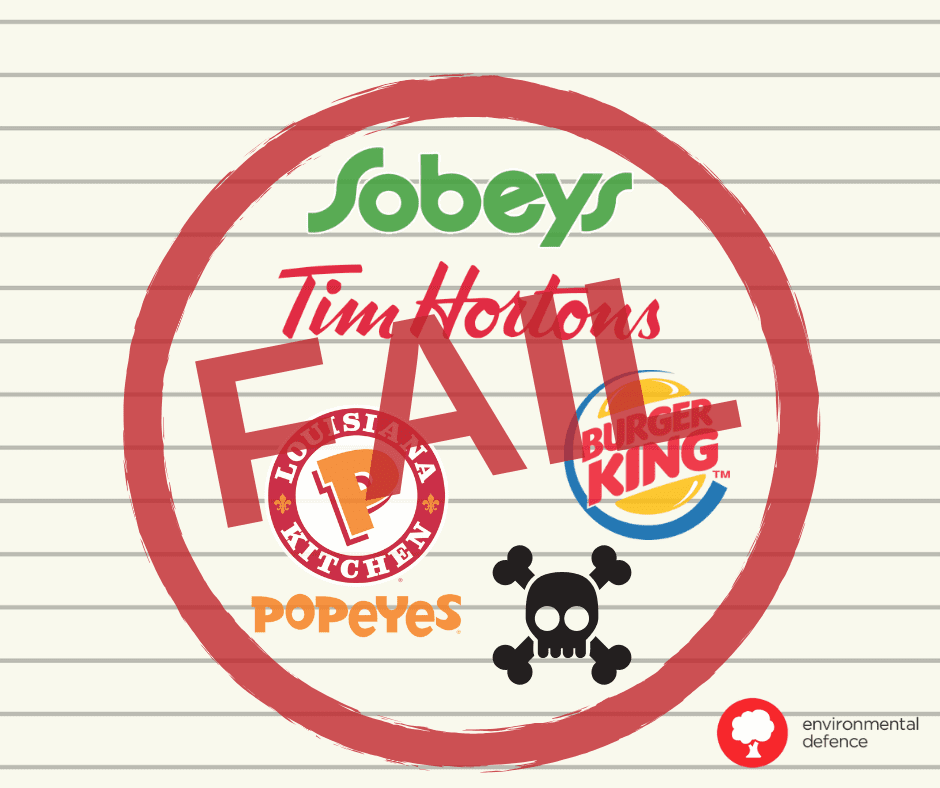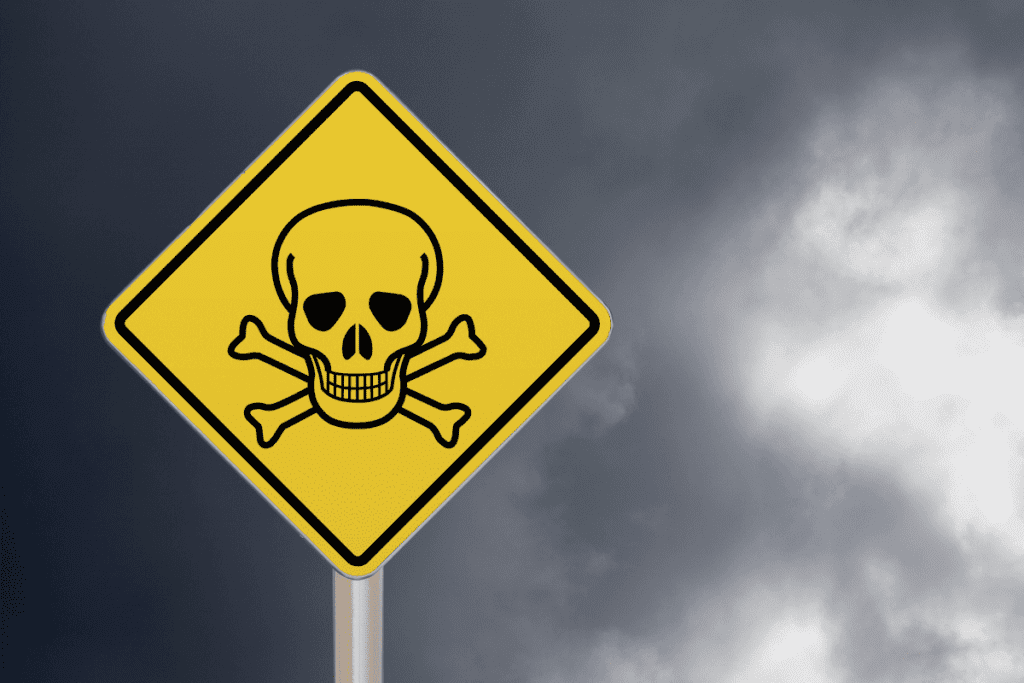Consumers are increasingly concerned about their exposure to toxic chemicals from products due to a growing body of research linking chemical exposures to health issues. Food, personal care and cleaning products as well as furniture and electronics have become a major source of exposure to harmful chemicals and hence consumer demand for safer products and better labels is on the rise. Are retailers taking action on toxics?
The third annual Who’s Minding the Store? retailer report card by the U.S. based Safer Chemicals Healthy Families graded the chemical policies and practices of forty major retailers in North America, as part of its Mind the Store campaign. Environmental Defence Canada partnered with Safer Chemicals Healthy Families to evaluate leading Canadian grocery retailers, expanding the scope of this initiative into Canada.
 Report highlights
Report highlights
- Four retailers received the highest grades for their work to protect customers from toxic products and packaging: Apple (A+), Target (A), Walmart U.S. (A-) and IKEA (A-). These top-ranked performers continually work with suppliers to disclose and replace dangerous chemicals with safer alternatives.
- Two of the three Canadian companies included in the report received a failing grade (F). These retailers were Sobeys and Restaurant Brands International (RBI; owner of Tim Hortons, Burger King and Popeyes)
- By contrast, Loblaw Companies Limited (owner of Loblaws and Shoppers Drug Mart) received a much better score compared to the other Canadian companies, receiving a C grade and ranking #13 Loblaws progress in removing the toxic class of chemicals known as phthalates from private-brand personal care and cleaning products as well as the antibacterial chemical triclosan largely drove its score, placing the company among the top three grocery retailers after Whole Foods (#5, B+) and Aldi (#9, B-).
- While not evaluated in this report card, Walmart Canada lags behind its U.S. counterpart as it has not publicly committed to implementing the safer chemical policies that drove Walmart U.S. to the top three. But earlier this year, Walmart Canada joined its American counterpart in phasing out harmful paint strippers. The Canadian company needs to build on this positive action by expanding Walmart U.S.’ policies into Canada.
The end of the deadly paint stripper era
Many retailers are taking action to reduce or eliminate chemicals of high concern in consumer products. For example, Lowe’s led a recent wave of commitments by ten major retailers including Canadian Tire and most recently Home Hardware (both of which weren’t included in the 2018 report card) to end the sale of paint stripping products containing the deadly chemicals methylene chloride and NMP.
Top retailers continue to strengthen or adopt new chemical policies
- Amazon (#14, C) is among the most improved retailers of the year after rolling out its very first chemicals policy in October, which restricts 54 chemicals of concern in its private-brand products including baby, personal care and cleaning products.
- Lowe’s (#20, D+), Costco (#12, C), and Sephora (#15, C) also reported major gains in 2018 compared to previous years.
Food retailers seriously lag behind others in reducing chemical hazards
Restaurant and grocery chains including Loblaws, Sobeys and restaurants owned by RBI have not addressed the presence of hazardous chemicals such as phthalates and PFAS in packaging and other food contact materials.
Too many retailers fail to address the chemical safety of their products
Almost half the retailers evaluated lacked even the most basic public chemicals policy.
Key recommendations for retailers
Loblaw
- Loblaw has made significant progress in removing key chemicals of concern such as phthalates from private-label personal care and cleaning products, but it should expand this policy to other products sold in its stores.
- Loblaw should also remove phthalates and grease-proofing PFAS chemicals from food packaging and food contact materials.
- Loblaw can also take easy steps to improve its score by requiring full disclosure of chemical ingredients in personal care and cleaning products from suppliers and sharing this information with consumers through product and/or online labels.
- Finally, Loblaw should continue its efforts to tackle BPA by establishing a timeline to completely phase out BPA from food cans and switch to bisphenol-free receipt paper.
Sobeys
- Sobeys should develop a publicly available chemicals policy and establish a restricted substances list that includes key chemicals of concern such as phthalates, PFAS, parabens and bisphenols (e.g. BPA, BPS).
- Sobeys can follow the lead of Loblaws and other retailers by removing phthalates and other chemicals of concern from personal care and cleaning products, and should commit to phasing out BPA, phthalates and PFAS from food packaging.
- Sobeys should switch to bisphenol-free cash register receipt paper.
Walmart Canada
- Walmart Canada should publicly commit to implementing the same safer chemical policies adopted by Walmart U.S.
Restaurant Brands International (RBI)
- RBI restaurants should publicly commit to eliminating phthalates and grease-proofing PFAS chemicals from all food contact materials and packaging.
- RBI should develop a publicly available safer chemicals policy and a restricted substances list.
It’s time for all retailers to put our families’ health above the special interests of chemical corporations.
For the full report, please visit RetailerReportCard.com
Acknowledgements
The report card is published by the Mind the Store campaign of Safer Chemicals, Healthy Families in partnership with the Campaign for Healthier Solutions, Environmental Defence Canada, Environmental Health Strategy Center and the Getting Ready for Baby campaign.








